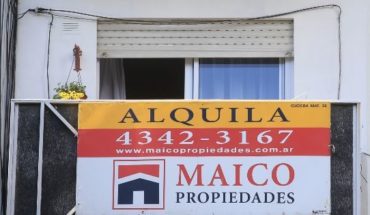
Chilean politics is going through one of the most complex moments in its history right in the midst of a significant number of electoral processes – some of them unpublished – which will shape a new constitutional text and a process of popular validation of new democratically elected officials.
In the midst of the health crisis and in a post-social outburst scenario, coalitions and political parties face this election without a clear idea of their possible outcomes. Thus, in the face of very relevant, highly competitive and uns predictable votes, the polls that are circulating today seem to upset social media and the political elite alike.
The presidential election does not depart from this awkward position. Weekly polls have leaders, militants and independents concerned about how to articulate forces in the face of an election that increasingly resembles peru’s elections a few weeks ago.
So, what’s left to do? A lot, but none of that seems to be a priority for coalitions and candidacies vying to govern.
Week-to-week notes with comments on cross-support are exchanged to a new candidate who scores 4% in a survey with a margin of error of 3.7%. Meanwhile, a figure who has a high positive rating at the national level and whose possible electoral success would trigger an electoral debacle for opposition and officialism is given the winner, when everything seems to indicate – depending on the profile of their supports – that their highest valuation comes from those who participate least in electoral processes. All conglomerates seem more concerned with clarifying who gives the most in the race to the Currency, using the National Congress or the Presidential Palace as the scene of a produced television show where candidacies are promoted and even their partners in front of journalists eager for the next headline.
In this agony, our political class does not seem very concerned to reflect on post-election Chile, the one in which we will begin to write our new Constitution and a new government will have to assume the administration of the state after a devastating crisis. This is particularly worrying today, given that we have become specialists in seeing political coalitions based on mere electoral expediency articulate, with no intention of even defining a shared roadmap on what to do when it comes to governing.
In simple, the historical moment demands a commitment like few in history, and yet the conversation remains articulated around who has the most options to win without much debate around how and with what ideas it is governed.
What good is a political agenda around withdrawals or a basic income if we don’t grow over the next few years to sustain it and recover what we spend? What value will a new Constitution have if Congress seems to have convinced itself that it is only a law rather than an obvious law when the polls ask for it? What is the government program that seems to best interpret a response to the injustices and inequalities we witness in the midst of this pandemic and post-social crisis? What are the urgent reforms that demand a substantive fiscal commitment?
The answer to these and other questions warrants a deep reflection, which is far from contributing to the positioning of candidacies for the next election. However, they are essential in laying the groundwork for articulating a political option. Especially one that far from understanding well how to win an election through bombastic phrases in a morning, once elected, is able to launch a government plan that looks forward to this crisis of legitimacy, that advances towards a guarantee system that supports all those in need, and generates an inclusive long-term development strategy. Maybe it’s too much to ask.
The content poured into this opinion column is the sole responsibility of its author, and does not necessarily reflect The editorial line or position of El Mostrador.





